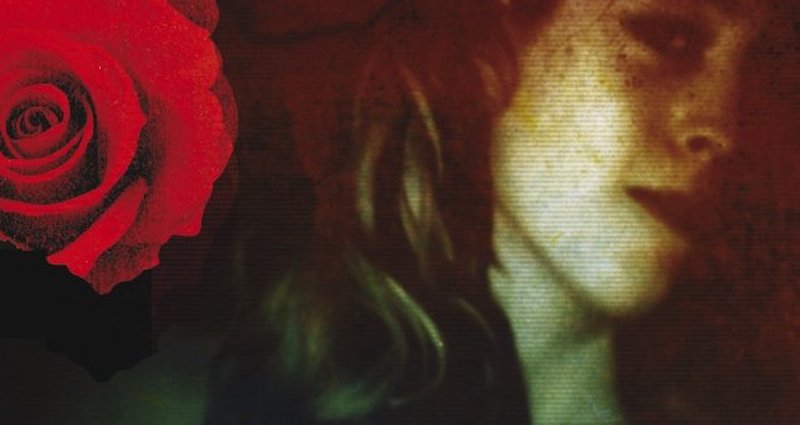
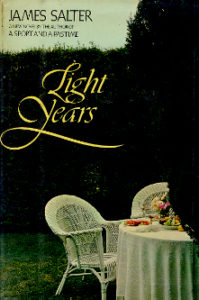
There is no complete life. There are only fragments. We are born to have nothing, to have it pour through our hands.
*
“I find it difficult to imagine the nature audience for Light Years. Is it meant for devotees of the cult of Scott Fitzgerald? Of Edward FitzGerald? The evocation of the primeval Hudson at the beginning brings to mind the famous passage on Long Island and the Sound in The Great Gatsby; the lavish celebration of domestic occasions seems intended to recall the life-style of Dick and Nicole Diver, if not indeed of Gerald and Sara Murphy. On the other hand, the sadness of the hedonism, the wistfulness for things passing, is pure Rubaiyat. The book provides a feast for lovers of ‘fine’ writing and mysteriously profound comments on life and love. (‘In the woman who overwhelms us, there must be nothing familiar.’) In one of the dust jacket commendations Salter’s style is inexplicably described as ‘mandarin.’ What one finds instead is a relentlessly poetic prose, an unearned lyricism that envelops the novel like Muzak. ‘The air overhead, glittering, infinite, the moist earth beneath–one could taste this earth, its richness, its density, bathe in the air like a stream.’ On and on.
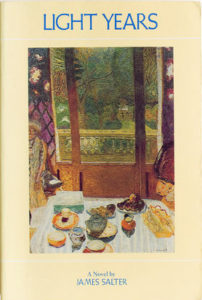
So much for the foolishness of Light Years, of which there is a great deal. In fairness it must be said that, as one reads on, the strained lyricism becomes less intrusive, certain episodes emerge with some sharpness, some poignancy: the mugging of an ebullient character Arnaud Roth, the lung-cancer death of Nedra’s drab father, Viri’s depression as he succumbs to his second marriage. The love of Viri and Nedra for their daughters is rendered with an intensity that seems emotionally honest, even moving. Occasionally, too, a precisely observed and arresting image breaks through the prevailing Muzak. But chiefly it is the primitive appeal of destinies unfolding in time that carries the reader along, the simple-minded quest for what comes next. This appeal must be admitted and perhaps honored–but with the recognition that it cannot go very far to redeem an overwritten, chi-chi, and rather silly novel.”
–Robert Towers, The New York Times, July 27, 1975
*
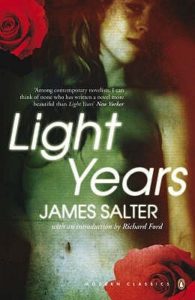
“I was new to New York, a freshman at Barnard College. I was unsophisticated, unmoored, bewildered by college and by the city. Reading the novel was like opening a window for the first time in spring, after a long winter has passed. Something worn out was set aside, something invigorating ushered in.
At the time I had not read much contemporary literature. I had certainly never read sentences so precise, so clean, so fervent and yet so calm. I reacted to the novel as I did to the books of my childhood: it cast a spell in the same way, provoking a reaction that was visceral and dreamlike and whole. But here was a book that was about adulthood, the undiscovered country that lay on the other side of a bridge I was only beginning to cross.
I loved the mood of the book, which was sober and sophisticated, but also casual, playful. I loved its structure, restrained and orderly, while at the same time loose and unspooling. I loved its intimate texture and its images
…
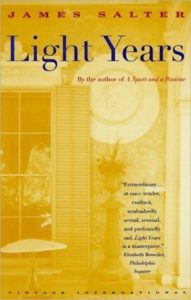
“In the beginning it was the light, the warmth of the novel that enchanted me. Afternoon trysts, evenings by the fire, languorous days by the sea. I was about the age of the daughters at one point in the story. Nedra and Viri were more remote, traveling toward middle age. I understood that the couple betrayed one another and separated, that the family lost its center, that death came. But in the beginning, coming to the book in a state of innocence, I was less affected by its outcome than I was captivated by what had come before. I was still at an age when the passage of time felt predominantly generous, benevolent.
In the course of nearly thirty years, I have come to read the book differently. I fell in love, married, became a writer, a mother. I am now older than Nedra when she leaves Viri, approaching the age when she grows ill and dies. Now I respond, as I did not before, to Salter’s moving reflections on parenthood, on solitude, on the earth’s beauty. Pleasure is something I continue to associate with the book; it is a novel that taught me the profundity of it. But I have grown vulnerable to its darker currents: the breach between family and autonomy, between possessing and renouncing, between being and nothingness.
…
“Reading Salter taught me to boil down my writing to its essence. To insist upon the right words, and to remember that less is more. He taught me that a plot can be at once a straight line and a collage, that tense and perspective are fluid things. That great art can be wrought from quotidian life. These teachings are ongoing. Each time I revisit the novel, I am humbled by how high a bar its author has set.”
–Jhumpa Lahri, The Paris Review, June 26, 2015

